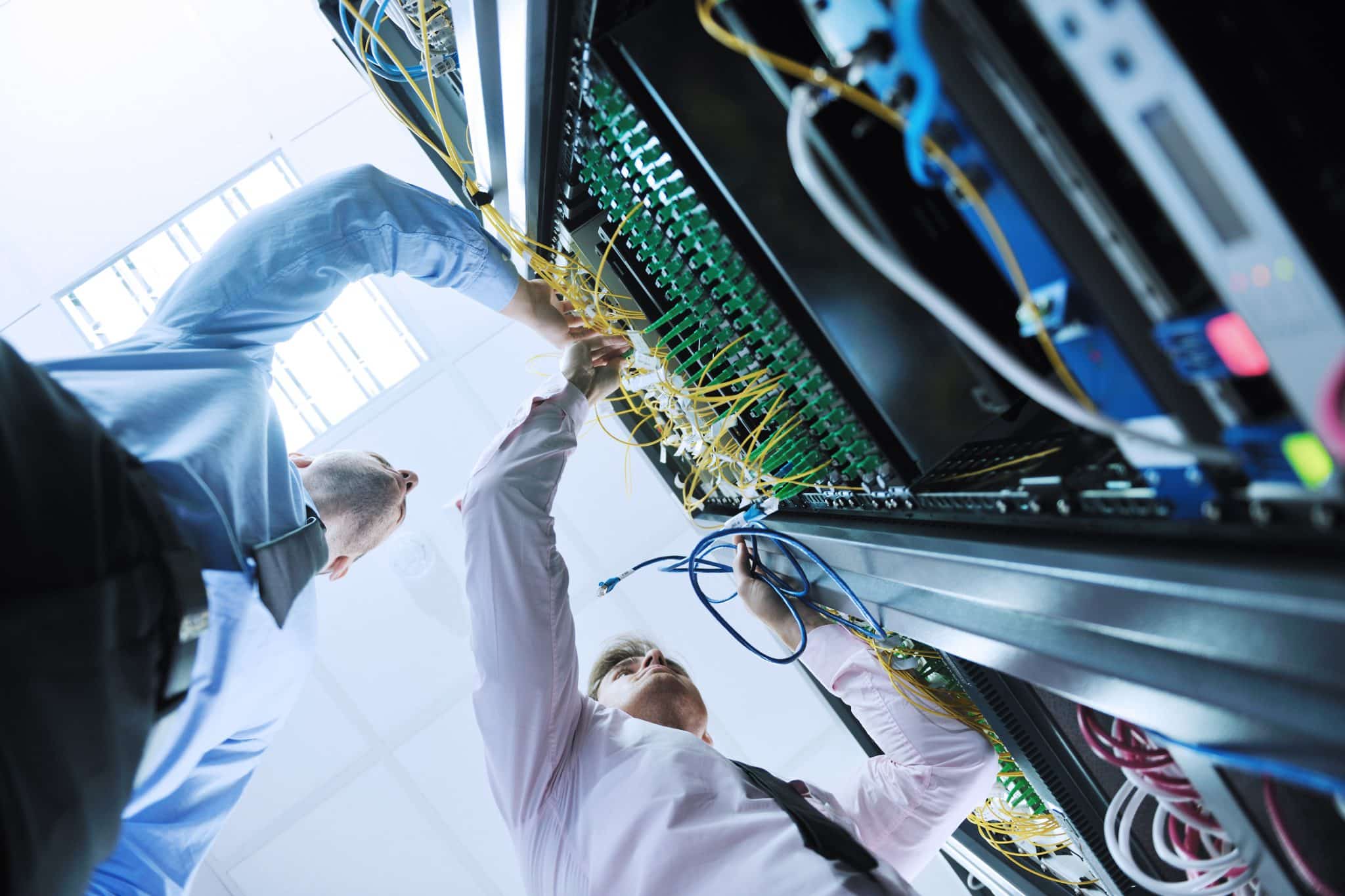The 101 on Server Rooms
You must have seen a server room in many movies. The crisscrossing of wires that make up the data cabling installation creates a maze in such scenes. But what are server rooms really, and why are they important? Let’s find out here.
What is a server room?
A server room is a specialized space in a building that is dedicated to keeping computer servers and other IT equipment. It is designed to provide an optimal environment for the servers, including temperature and humidity control, power supply, security, and accessibility for maintenance.
What does a server consist of?
A server consists of several hardware and software components. These work together to provide services to clients or other devices on a network. The hardware components of a server include a central processing unit (CPU) and RAM. Servers will have interfaces for network connection, structured data cabling, and power supplies. It would also have storage devices such as hard drives or solid-state drives.
How to choose the location of your server room?
Factors such as size and scalability, accessibility, security, environmental conditions, and regulatory compliance of your building can help you choose the location of your server room. Consult a professional data cabling technician who can help you finalize the site that works best for your server room.
How to maintain a server room?
Maintaining a server room is essential. It ensures the reliability, security, and performance of the servers and other equipment housed in it. Regular cleaning of the floors, walls, and equipment can help prevent dust accumulation. The temperature and humidity levels in the server room should be controlled. Installing air conditioning and dehumidifiers can help to achieve this.
A power outage or blackout can cause damage to the servers and data loss. Installing a backup power supply, such as a generator or battery backup, can help to prevent these issues. Regular maintenance of the servers and other equipment, including structured data cabling by a professional data cabling technician, is a must. It can help to prevent issues and prolong the life of the equipment.
Determining your server room needs
Determining whether you need a server room depends on your business requirements. Suppose your organization has more than a few servers. In that case, a dedicated server room can help to keep them organized and secure.
Some essential types of equipment needed for a server room are mentioned below.
Servers generate a significant amount of heat. So, the server room must be kept at a constant temperature to ensure optimal performance. Cooling systems, such as air conditioning or water cooling, help with this.
Structured data cabling help to keep cables organized and prevent interference with airflow or other equipment. UPS provides backup power in case of power outages, protecting the servers from data loss or damage. Network equipment such as routers, switches, including firewalls is mandatory.
Lastly, access control systems, such as biometric scanners or keycard systems, are required. They help to control access to the server room and prevent unauthorized access.
Suppose you are looking to build a server room for your business. In that case, you need a professional data cabling technician to do the job correctly. IT companies who are adept at data cabling installation will get your server room up and running in no time. Contact Priority Networks today for more information!




